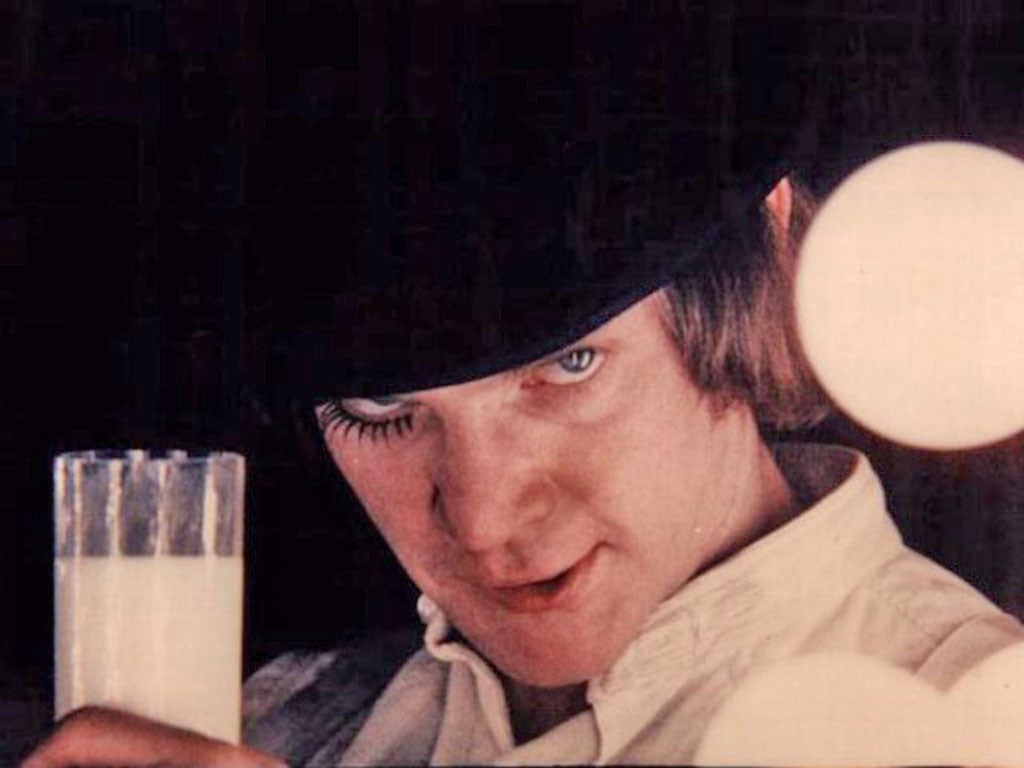How Burgess classic A Clockwork Orange was tagged 'enormous flop'
It was almost turned down by the publisher after the reader's initial report predicted it could be a failure

Your support helps us to tell the story
This election is still a dead heat, according to most polls. In a fight with such wafer-thin margins, we need reporters on the ground talking to the people Trump and Harris are courting. Your support allows us to keep sending journalists to the story.
The Independent is trusted by 27 million Americans from across the entire political spectrum every month. Unlike many other quality news outlets, we choose not to lock you out of our reporting and analysis with paywalls. But quality journalism must still be paid for.
Help us keep bring these critical stories to light. Your support makes all the difference.
It is one of the most controversial and successful books of the last century, depicting the exploits of a gang of feral teenagers on a spree of robbery, rape and "ultra-violence".
Now a new document obtained by The Independent on Sunday reveals that Anthony Burgess's A Clockwork Orange was almost never published at all because of concerns it might turn out to be an "enormous flop". The remarkable assessment of Burgess's most famous work is revealed for the first time in an internal reader's report for Heinemann, which eventually published the novel.
Dated September 1961 – more than a year before the novel was published – the document was recently discovered in the publisher's archive and made available to The IoS by the International Anthony Burgess Foundation (IABF).
Written by Maire Lynd, the in-house fiction reader for Heinemann and the first person to review the book, it warned the novel would be hard to understand. "Everything hangs on whether the reader can get into the book quickly enough," she wrote. While praising the "neat" plot and "good" detail, she described the "great" difficulty in making sense of the slang used in the book. "A hint is dropped that the language is based on rhyming slang, Balkan words and a little gypsy talk... It is fascinating but rather hard work to read and is only indirectly funny."
She predicted that the invented slang of A Clockwork Orange would become part of the language; the most recent edition of Chambers English Dictionary includes the word "droog", meaning "gang member or violent hooligan", which is drawn from Burgess's novel. He based it on the Russian word for "friend".
Ms Lynd described the ending as "a little soggy … but the rest of the book is pretty cynical. No one escapes." She concluded: "With luck the book will be a big success and give the teenagers a new language. But it might be an enormous flop. Certainly nothing in between."
It turned out to be both, selling few copies after it was published in 1962 but taking off after the release of Stanley Kubrick's controversial film adaptation, starring Malcolm McDowell, in 1971.
A Clockwork Orange transformed Burgess, who died in 1993, into one of Britain's most influential literary figures. Known previously as a writer of light comic novels, he became a gloomy prophet of dystopian violence, said Dr Andrew Biswell, IABF's director.
"Heinemann had recently been prosecuted for publishing an 'obscene' novel on a homosexual theme by Walter Baxter, The Image and the Search. In 1959 they had rejected Lolita, having published all of Nabokov's earlier novels. Two of Burgess's earlier books had attracted expensive libel actions, and one of them had been recalled and pulped," he told The IoS. "With all this in mind, it must have required a good deal of courage to publish A Clockwork Orange in 1962. It is unlikely that Burgess ever knew how close the publisher had come to rejecting it."
The revelation of the reader's report comes ahead of the release of a new edition of A Clockwork Orange this week to mark the 50th anniversary of its publication. It includes a previously unpublished interview in which Burgess reveals: "It is ironic that I am always associated with A Clockwork Orange. This, of all my books, is the one I like least."
Join our commenting forum
Join thought-provoking conversations, follow other Independent readers and see their replies
Comments